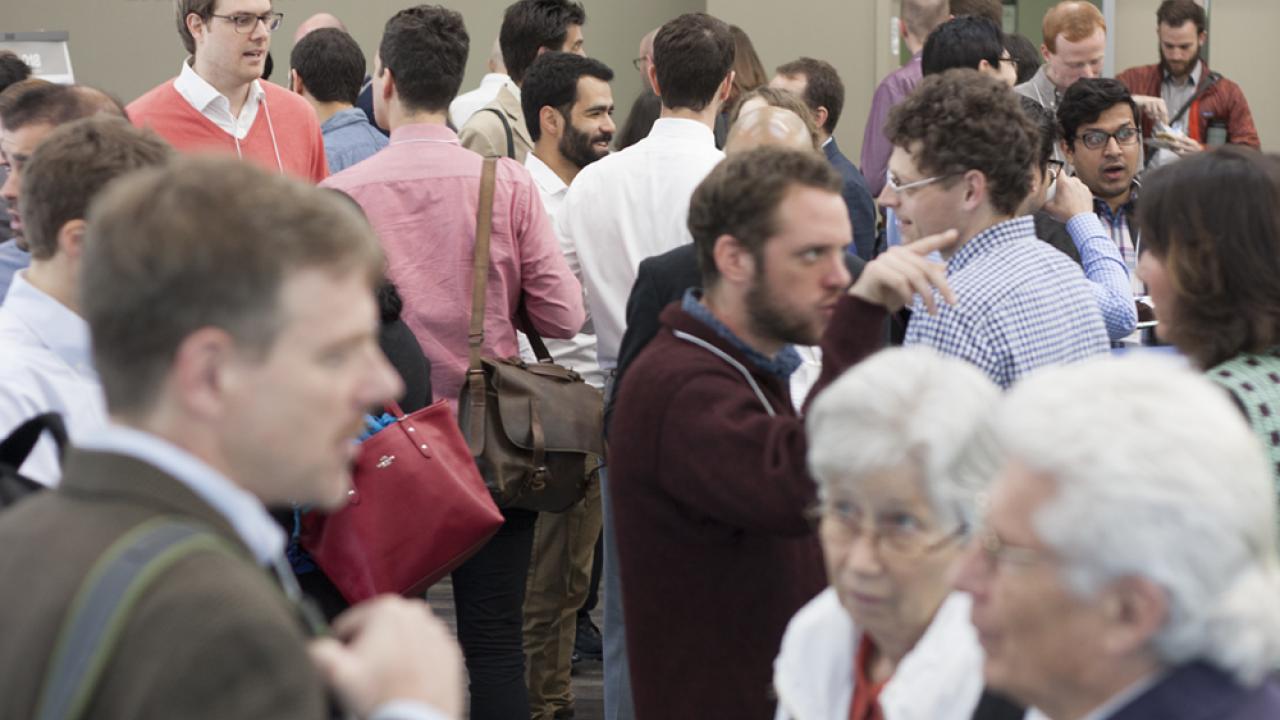
PacDev Conference Charts the Future of Development Economics
PacDev 2018 at UC Davis convened leading development economists from around the world to present and discuss the future of research and policy on March 10, 2018.
The Pacific Development Conference—PacDev—is one of the major annual conferences dedicated to development economics and the largest on the U.S. west coast. It is primarily an opportunity for researchers to present new ideas and to network with others in their field.
“This is an opportunity to advance cutting-edge research on economic development,” said Michael Carter, director of the AMA Innovation Lab and a co-organizer of the event. “That’s one of the things we do as a research institution.”
Leading Research in Development
Over 300 papers were submitted to PacDev 2018 and only 64 were accepted for presentation. About 40 percent of this year’s PacDev presentations came from advanced graduate students, whose work today defines the future of the field.
“We had lots of good papers and a good mix of student and faculty presentations,” said Nick Magnan, an associate professor of agricultural and applied economics at the University of Georgia. “Certainly at the leading edge of this kind of work are studies of light-touch interventions that can have big effects.”
This year Magnan moderated a session and presented results from his AMA Innovation Lab randomized controlled trial (RCT) on a livestock transfer and training program in Nepal. It was his fifth time attending PacDev.
Magnan first presented at PacDev as a Ph.D. candidate in agricultural and resource economics at UC Davis. He said that first experience at PacDev was important because it was his first opportunity to present his own research in front of well-known economists whose work he had been reading.
“I thought that if I can present my work in front of them, then I can present it in front of everybody,” he said.
Keynote on the Scale of Experiments
Keynote speaker Paul Niehaus’ talk was in part based on his paper with Karthik Muralidharan, “Experimentation at Scale,” published in 2017 in Journal of Economic Perspectives. The scale of an experimental study, he argued, can have a big effect how well the results might apply to broader public policy.
The selected site or population for the intervention might not be more broadly representative or data from a small-scale intervention might not predict large-scale impacts. Also, an organization or bureaucracy taking an intervention to scale could itself affect a program’s outcomes.
“How big of an impact do these decisions have on the lives of people on the ground? How can we make a program evaluation more valuable” said Niehaus. “These are the things we should worry about any time we do program evaluation for informing policy.”
Niehaus also discussed the potential of research that seeks more than just positive impacts. There could be incredible value, he argued, in identifying expensive interventions that have no measurable benefit, effectively taking funds away from interventions that could have an impact.
“There are probably things that we are doing that we should,” said Niehaus. “There are also probably a lot of things that we are doing that we shouldn’t. The two are potentially equally important.”
Broad participation
Alexandra Wall, a Center for Effective Global Action (CEGA) program associate, was particularly interested in presentations on big data and satellite technology for development. CEGA, based at UC Berkeley, supports research on global development through a network of west coast researchers at Stanford University, the University of Washington, the University of Southern California, the University of British Columbia and the University of California system.
CEGA had just hosted a conference on artificial intelligence for economic development. At PacDev, a set of similar talks included using satellite images to map poverty and economic activity and one on using a network of mobile phone subscribers to identify commercial monopolies.
“It’s useful to get exposed to research in different sectors in development,” said Wall.
PacDev follows in the tradition of the Northeastern Universities Development Consortium (NEUDC), which has organized similar conferences since 1967. Hosting for PacDev rotates between California universities with unique strengths in development economics.
"Research communities thrive on a professional engagement that balances skepticism and criticism with encouragement and inspiration," said Travis Lybbert, a co-organizer of the event and a professor of agricultural and resource economics at UC Davis. "In the past decade, PacDev has become an important venue for such engagement among development economists."
Since 2007, PacDev has been hosted at UC San Diego, San Francisco State University, the University of Southern California, UC Berkeley, UCLA, Stanford and UC Riverside. This year is the third time UC Davis has hosted the event.
PacDev 2018 was co-sponsored by the UC Davis Department of Agriculture and Resource Economics, the Department of Economics and the AMA Innovation Lab.
See a full list of PacDev 2018 presentations and working papers at pacdev.ucdavis.edu.
Alex Russell manages communications at the AMA Innovation Lab.
